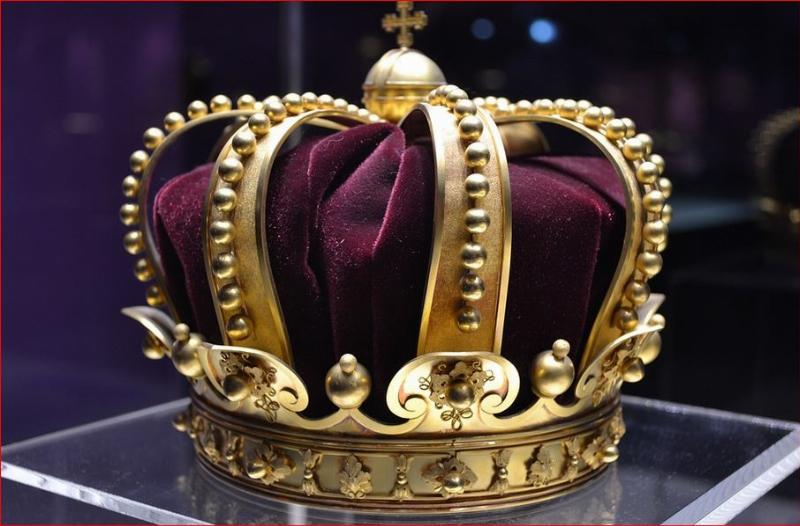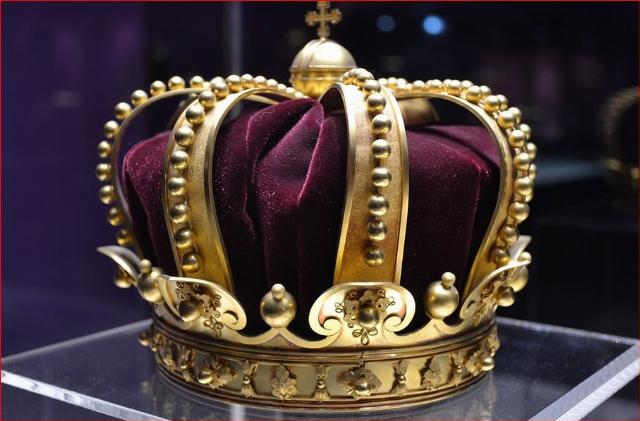


As Americans face a Saturday of organized anti-Trump protests, we’ll likely hear the refrain du jour: “No kings!”
Monday is the 250th anniversary of the Battle of Bunker Hill, when we really rebelled against “kings.” Not hearing much mention of that.
Today is Flag Day, marking one of the first laws the Continental Congress passed: our flag design. Guess what! It was not red, white, and green with a cactus.
Yes, America has no “kings,” and we’re likely to hear a lot about the “imperial presidency.” I guess that’s a perspectival flaw in U.S. history.
See, American history is usually seen through a British interpretive lens. And in English history, the king generally got the best of things. Yes, the barons forced his hand at Runnymeade with the Magna Carta. But royal absolutism grew under the Tudors (the folks who told you what “church” you could go to — the one they invented) and especially the Stuarts. By the 18th century, there were some checks on British royal power. Nevertheless, George III was no Charles III in terms of a figurehead.
British history was largely a back-and-forth between king and nobility or commoners, the former at first winning. Let me suggest a different perspective: Polish history.
Poland, which in the Renaissance was Europe’s largest country, also experienced push-and-shove between king and nobility. The difference was that in Poland, the nobility prevailed. And that had disastrous consequences.
For one, the Polish monarchy ceased being hereditary and became elective. Sounds “democratic” ’til you realize it generally produced unthreatening mediocrities. In the name of “democracy,” which the nobility christened “golden liberty,” individual freedom was carried to the extreme: In order to ensure that nobody’s “rights” were “trampled,” parliament adopted the liberum veto. The liberum veto meant any law had to pass unanimously; even if one member objected, his “freedom” could not be impinged. What it meant in practice was discount corruption for foreigners. The Austrian, German, and Russian emperors no longer had to bribe a majority of noblemen in parliament. They only had to buy off one. By 1795, a handful of corrupt nobility sold Poland out to three partitioners, who took it off the map until 1918.
Why do I make this comparison? Because of the ongoing political theatrics of the left over the Senator Alex Padilla handcuffing. “Noblemen” are as much a threat as kings.
Padilla’s defenders are hyperventilating about the administration’s “authoritarianism,” “fascism,” “dictatorship,” “lack of respect.” In their effort for the common touch, they claim, “If you can do this to a sitting U.S. senator, you can do it to anybody.” Like the illegal day laborer waiting for a gig in the Home Depot parking lot. “No kings!”
Maybe not. But, apparently, we have lots of little princes.
Forget the common touch shtick. None of those day laborers would likely have the gall to march into somebody else’s press conference and think he is entitled to shout questions or make a ruckus. Only “a United States senator” thinks he’s entitled to do that.
He claimed he was engaged in “oversight.” Democrats have recently morphed “oversight” into regal dimensions: Every individual member of Congress walking anywhere at any time has suddenly become an “oversight investigation” with a “right” to intrude on any event. Once upon a time, “oversight” meant hearings, written questions on the record, depositions. Now it means whatever a princely senator or congressperson says it is.
There’s been a lot of talk about “norms.” Among the norms I learned was that I don’t interrupt other people at will at their events — not even if I’m a “sitting United States senator.” That’s what’s demanded of any discourse, not just political discourse. And noble people knew that, even knew it was expected of them: noblesse oblige.
But clearly some officials deem themselves exempt from norms, ab-normal. They can yell, “No kings!” They assert immunity to commandeer other people’s press conferences. To subvert federal law enforcement by sneaking wanted defendants out private exits. And then lecture us about “equality.”
Americans may have “no kings,” but it seems we have a lot of entitled petty nobility.

Image via Pixabay.
